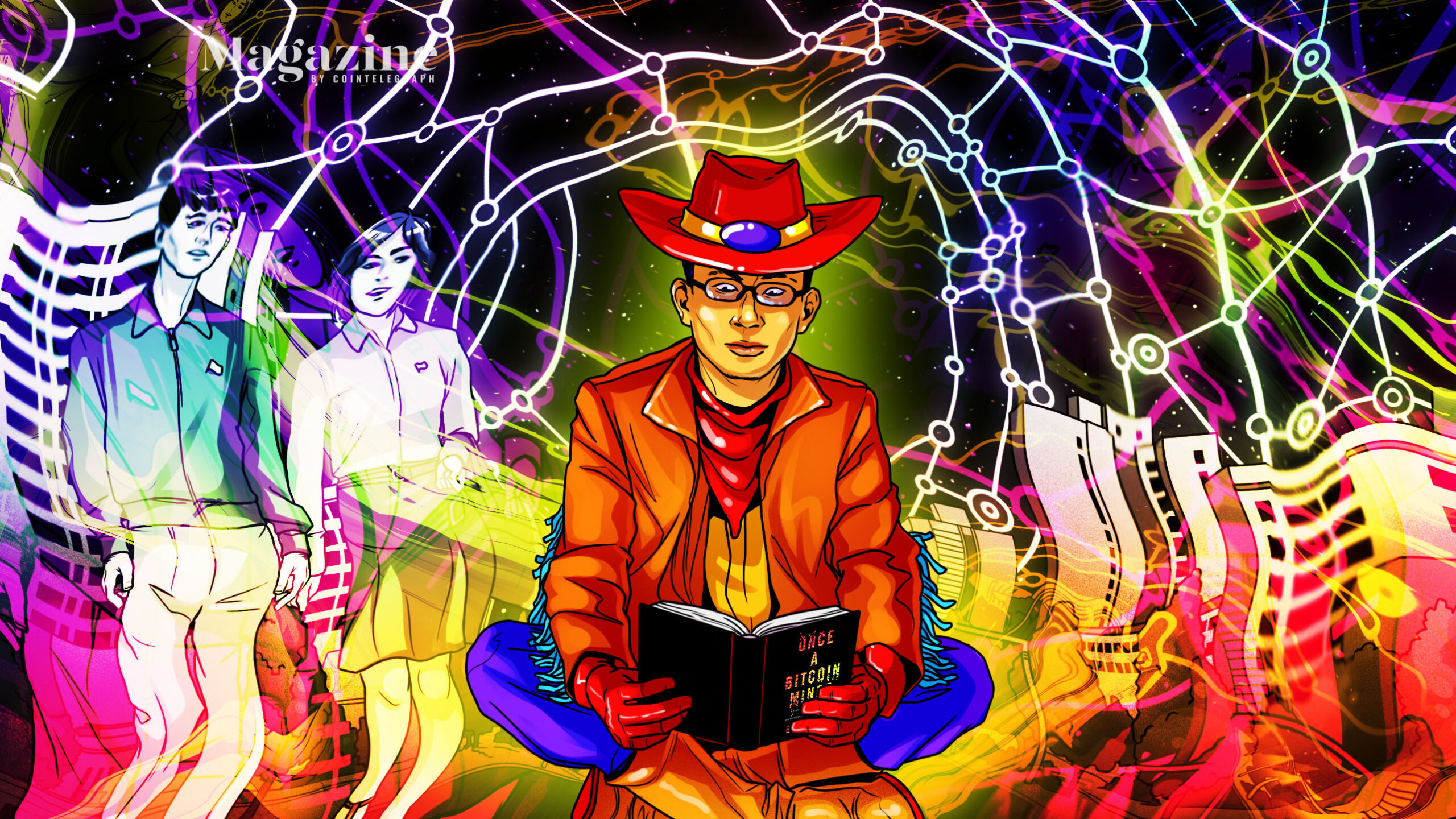Ethan Lou is a journalist turned Bitcoin miner turned two-time author whose latest book, Once a Bitcoin Miner: Scandal and Turmoil in the Cryptocur
Ethan Lou is a journalist turned Bitcoin miner turned two-time author whose latest book, Once a Bitcoin Miner: Scandal and Turmoil in the Cryptocurrency Wild West, is a modern western recount a gloomy millennial’s rebirth in the wild west of crypto — complete with scammers, party drugs and a North Korean crypto conference.
“Want to go to a crypto conference in North Korea in April?” is not a common question, but was asked of me by Lou in early 2019.
The Pyongyang Blockchain and Cryptocurrency Conference, attended by about 100 people, is the big attraction in Lou’s book. This is because eight months after the event, in November 2019, Virgil Griffith, who worked with the Ethereum Foundation and who was among the attendees Lou got to know, was arrested by the FBI for breaking sanctions and illegally providing “highly technical information” to the North Korean government.
With Lou watching from the New York courtroom’s gallery on the first day of the trial in September this year, a “quite emotional” Griffith pled guilty to a charge of conspiracy to violate sanctions laws in a deal which may see him spend over six years in prison. This was a surprise to Lou, who notes that Griffith’s lawyers had requested the judge to allow for two suits “so that he can wear different outfits on different days,” suggesting that they, too, had expected the trial to last longer than a day.

Lou, who considered the conference an innocuous opportunity to see North Korea, recalls how Griffith’s initial arrest was a shock to everyone who had attended. He explains that the event was advertised as a crypto conference and he “thought we were going to hear from the North Korean crypto people because North Korea has been accused of doing lots of shady stuff with crypto,” referring to accusations of state-sponsored hacking, among others.
But, there were no North Korean crypto people.
“It turns out we, the participants, were asked to be presenters.”
Though it appeared that some of the attendees, like Griffith, came prepared to present, “most of us thought we were going to take information from the Koreans,” he says, adding that he declined to give a presentation. As most presentations were prepared just days before, the event’s content consisted of only “surface level, Wikipedia-type information.” Lou notes that the event was organized by “the cultural side,” of the DPRK administration and that their “crypto people” never made themselves known.
Still Day 6. At the conference. From inside the building looking out. This monument here is of a pen and then there’s an atom on top, symbolizing science and writing and stuff. 26/15 pic.twitter.com/iMDuwOG5Br
— Ethan Lou (@Ethan_Lou) October 27, 2021
“I don’t think Griffith had any intention of benefiting North Korea in any tangible way. I don’t think he brought North Korea any benefits and he didn’t derive any personal benefit — he paid quite a lot of money to be at the conference.”
What the group of merry conference-goers missed out on expected North Korean crypto insight, they gained in friendships and interesting stories — much of the time was spent touring Pyongyang and getting “very drunk with our Korean minders.”
“It was a very interesting insight into North Korea for sure, but there wasn’t any crypto insight.”
Journalist in training
Lou, 31, was born in Harbin, a northern Chinese city near the Russian border. He soon moved to Germany on account of his father doing Ph.D. work related to engineering there. Growing up in Germany, he developed a passion for reading and writing which inspired him to pursue the “very natural choice” of journalism for his undergraduate degree at Ryerson University in Toronto, Canada.
Alum & author @Ethan_Lou joins @Ryerson_Alumni on Nov. 23 for a Book Talk about his new book, Once a Bitcoin Miner: Scandal and Turmoil in the Cryptocurrency Wild West.
RSVP for the event: https://t.co/FmpyidjGD7
— School of Journalism (@JSchoolNow) November 12, 2021
Lou discovered Bitcoin around 2012 while exploring the dark web with his friends. This secretive underbelly of the internet which can only be accessed by the Tor browser once played host to the infamous Silk Road drug marketplace where BTC functioned as the payment method. Its operator, Ross Ulbricht, was sentenced to life after his 2013 arrest which resulted in the United States government’s seizure and subsequent auction of 144,000 Bitcoin.
He re-encountered Bitcoin the following year in New Brunswick, a Canadian province on the Atlantic where Lou was an intern for a local newspaper when he interviewed Anthony Di Iorio, the founder of the Bitcoin Alliance of Canada.
Returning home to Toronto after his internship and variously working as a journalist for The Canadian Press and the Toronto Star, he familiarized himself with the…
cointelegraph.com
